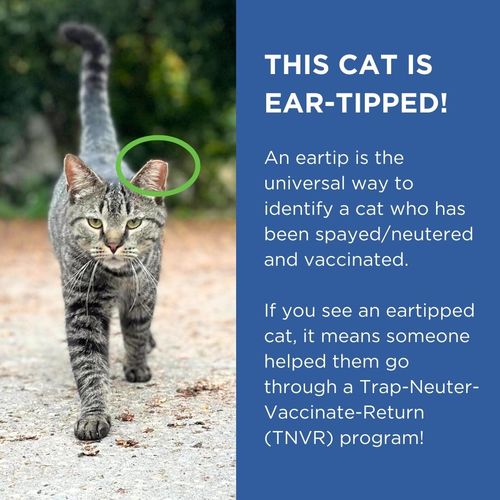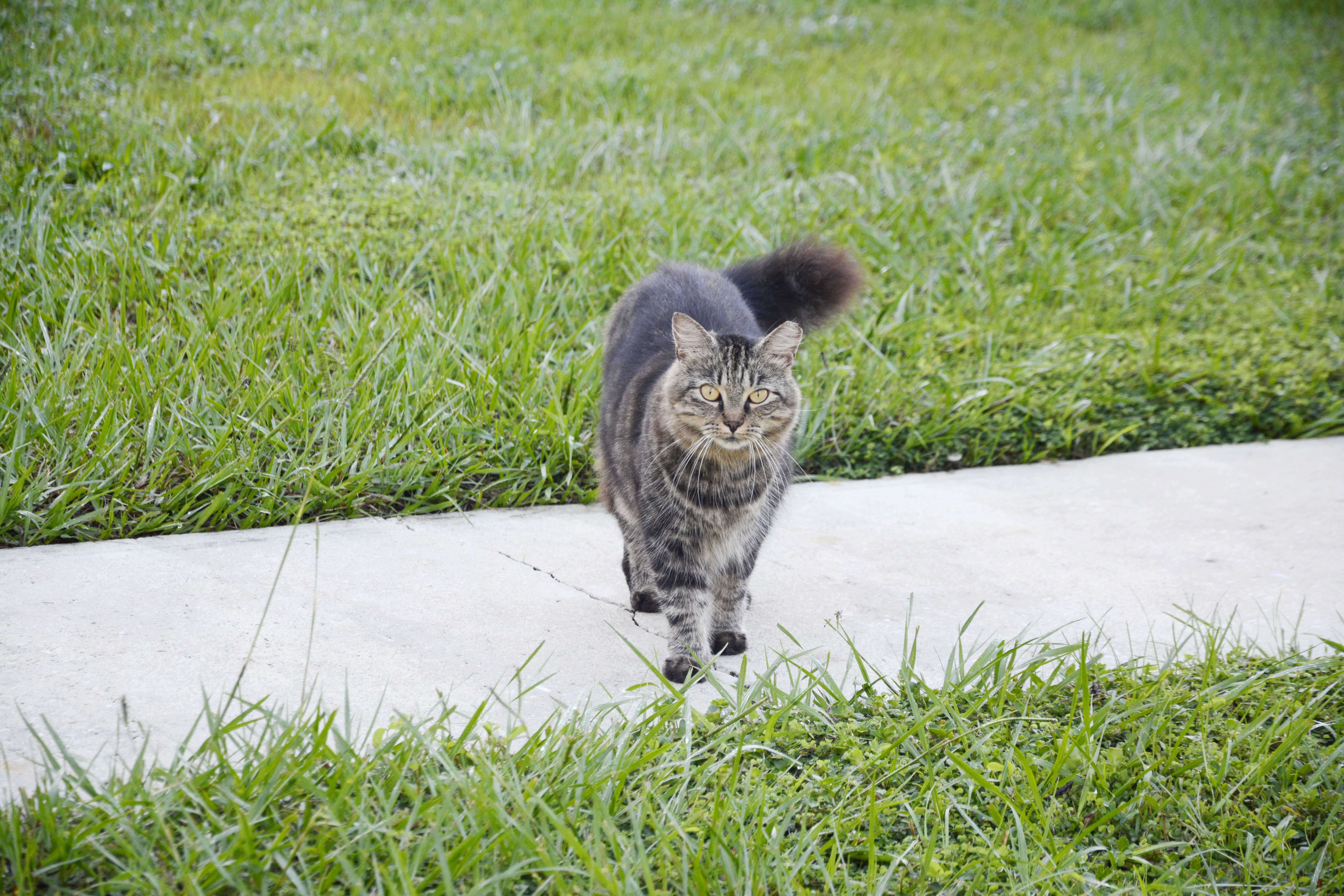MEOW Now: Community Cat Program
Intake days: Intake is closed Monday, Jan. 19, in observation of MLK Jr. Day. Unless otherwise posted, intake is open until capacity is reached on Sundays and Mondays. Sign up for our MEOW Now text notifications by texting JOIN to 813-497-2362 so you can get prompt notifications if our program reaches capacity or needs to close unexpectedly. You can opt out or back in at any time.
Due to rising costs of care, MEOW Now, our TNVR program, now operates as a donation-based program. We want to help as many cats as we can, so we need our community to step up to help, too. Please donate what you can toward the program for each cat when you participate. Thank you for your understanding and continued support of TNVR!

MEOW Now is a Donation-based program for community cats and their caregivers!
Community cats are unowned, free-roaming outdoor cats. Some are unsocialized to people and others are friendly. Our MEOW Now program’s goal is to humanely reduce the outdoor cat population through Trap-Neuter-Vaccinate-Return, or TNVR. Cats are trapped by either our staff, volunteers, or the public, brought to the shelter to be spayed/neutered, vaccinated for rabies and other feline diseases, and ear tipped before they are returned to their outdoor home to live their life.
Why is this program so important to help humanely reduce the community cat population? A cat can get pregnant at 4 months old; could have 3-4 litters in a year; and can average 3-5 kittens per litter. That means just one pair of mating cats can produce 20 more cats! In addition, spaying/neutering free-roaming cats can help reduce behaviors like vocalization during breeding season, fighting, spraying and more. Without the urge to reproduce, community cats can live healthier lives outside.
- Self-Trapping: best for 1-2 community cats
-
- Trap cats individually on your own. Traps available for refundable deposit at Friends of Strays.
- Cats must be in traps at the time of surrender. Approved traps include Tru Catch, Havahart, and Tomahawk humane traps.
- Bring cats in traps to Friends of Strays on our open intake days. Please see top of page for program days.
- Cats must be at least 4 months old. Maximum of 2 cats per person per day.
- You pick up to return outside or we will return to the provided address
- No appointment required
- Cost: $75 deposit to rent the trap, which will be refunded to you when the trap is returned. Donations appreciated.
- Questions? Call 727-522-6566 ext 107
- Self Trapping intake is impacted by holiday closures.Please check this page or call to inquire about intake closures prior to most federal holidays.
- If our self-trapping program hits capacity, we will close intakes for the rest of the day. If you are concerned, please call ahead at 727-522-6566.
- Found kittens? Click here before making any decisions!
- Assisted Trapping: paused at this time
-
- Submit TNVR Assistance Request form
- MEOW Now staff/volunteers set up an appointment for trapping
- MEOW Now handles transport/return
- Appointment required
- Cost: no cost but donations appreciated
- Questions? Call 727-522-6566 ext 116
- How To Trap A Cat
-
- Line the bottom of the trap with newspaper and place food in the trap as far back as possible. Use potent, tasty food like tuna or wet food as bait and put it on a paper plate. Do not put a can in the trap. You can also dribble food juices leading up to the trap for enticement.
- Cover the trap with a blanket, towel, or brush to entice the cat into the trap. This will also keep the cat calmer while in the trap.
- If you feed the cat regularly, do NOT feed the cat for 24 to 48 hours prior to setting the trap. The cat is more likely to enter if they are hungry.
- If you catch the wrong cat, or another animal, just let it go. Be sure to stand behind the trap and use a stick to open the trap.
- Set the trap no earlier than the night before intake. Cats are more likely to enter traps at night. Don’t leave the trap unattended and watch from a distance.
- Cover the trap completely with a blanket, sheet, or towel as soon as the cat is trapped. Cats can panic and injure themselves, so the cover helps them remain calm.
- Once the cat is trapped, move the trap to a safe, climate-controlled location overnight. Do not leave the cat out in the elements, especially if it is overly hot, cold, or wet.
BECOME A VOLUNTEER
If helping community cats is your passion, we have volunteer opportunities from community cat care to trapping and transporting! If you want to get involved, send us an email at meownow@friendsofstrays.org.
Community Cat Resources
MEOW Now Self Trapping Cat Intake Questionnaire
Seven Ways to Help Community Cats Thrive
TNVR FAQ
Humane Deterrents for Community Cats
Trapping Instructions
Tips for Trapping Tough Cats
Resources for Community Cat Caregivers
RTF Impact Study
Instrucciones para "Pinellas Cats Alive" en Español


